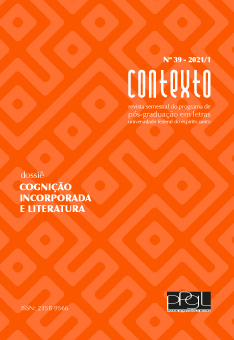Ser e não ser: as dualidades em Hamlet, leituras e (im)permanências – eis a questão!
Resumo
RESUMO: Propõe uma leitura de Hamlet, de Willian Shakespeare, a partir da análise das dualidades constituintes dessa tragédia. Apoia-se em leituras anteriores sobre o dramaturgo inglês, a peça em questão e o gênero teatral, pelos consagrados Aristóteles, Victor Hugo, Sigmund Freud, John Gassner, Barbara Heliodora, Sábato Magaldi e outros. Após a identificação e interpretação dos dualismos presentes na construção da peça e de seus personagens, e diferentemente de alguns dos referidos estudiosos, verifica que a procrastinação do príncipe Hamlet, muito censurada pelos críticos, se coaduna à finalidade do teatro e que a hesitação do personagem é característica constituinte do gênero a que pertence a peça, a tragédia de vingança. Propõe outras possibilidades de interpretação para a peça, para além do mito do Complexo de Édipo. Finalmente, reconhece tal dualidade como chave de leitura para o texto shakespeariano, como faculdade interpretativa mutável que permite que Hamlet seja acessível, em qualquer tempo, a qualquer público espectador ou leitor e, ainda, que se torne uma peça sempre atual.
PALAVRAS-CHAVE: Willian Shakespeare (Hamlet). Dualidades constituintes. Tragédias de vingança. Complexo do Édipo.
Downloads
Publicado
Edição
Seção
Licença
Copyright (c) 2021 Fernanda Scopel Falcão

Este trabalho está licenciado sob uma licença Creative Commons Attribution-NonCommercial 4.0 International License.

Este obra está licenciado com uma Licença Creative Commons Atribuição-NãoComercial 4.0 Internacional.





